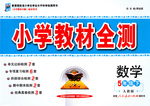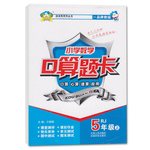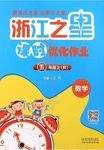题目内容
【题目】假如你是学生叶子,你的网友Peter听说美国第一夫人米歇尔(Michelle Obama)访问了你的学校,他想了解当时的情况。请按照以下要点给Peter回一封邮件。
1. 具体情况:1)发表演讲并与学生互动;2)与40名学生上了一堂英语课;
3)参与了一节太极课。
2. 发表自己的感想。
注意:1.词数100左右; 2.可以适当增减细节,以使行文连贯;
3.开头语已为你写好; 4. 参考词汇:太极------ Tai Chi
Dear Peter,
In the last letter, you’d like to know something about Mrs. Obama’s visit in our school. _____________________________________________________________________
_______________________________________________________________________________
_______________________________________________________________________________
_______________________________________________________________________________
_______________________________________________________________________________
_______________________________________________________________________________
_______________________________________________________________________________
_______________________________________________________________________________
_______________________________________________________________________________
_______________________________________________________________________________
Yours sincerely,
Ye Zi
【答案】
Dear Peter,
In the last letter, you’d like to know something about Mrs. Obama’s visit in our school. Now, I am writing to share some information and my feelings with you.
Mrs. Obama began her visit by giving us a speech, during which she told her own stories, highlighted the importance of education and interacted with us. Then she participated in an English class with 40 students and had a lively discussion on varieties of topics, including how students can deal with competition and failure, the value of studying abroad. What impressed me most is that she observed and actively participated in Tai Chi class.
Yours sincerely,
Ye Zi
【解析】
试题分析:本次作文要求网友Peter听说美国第一夫人米歇尔(Michelle Obama)访问了你的学校,他想了解当时的情况。请按照以下要点给Peter回一封邮件。要点包括:1. 具体情况:1)发表演讲并与学生互动;2)与40名学生上了一堂英语课;3)参与了一节太极课。2. 发表自己的感想。故既要完成任务,又要兼顾形式的要求。
写作亮点:本篇条理清楚,要点全面,结构连贯。其句式上的变化既使得文章生动而流畅,也体现了作者驾驭句式的能力。例如:文章运用了定语从句during which she told her own stories, 宾语从句how students can deal with competition and failure, 主语从句What impressed me most和表语从句that she observed and actively participated in Tai Chi class.还运用了highlighted,interacted,participated in 等词汇。

 小学教材全测系列答案
小学教材全测系列答案 小学数学口算题卡脱口而出系列答案
小学数学口算题卡脱口而出系列答案 优秀生应用题卡口算天天练系列答案
优秀生应用题卡口算天天练系列答案 浙江之星课时优化作业系列答案
浙江之星课时优化作业系列答案【题目】任务型阅读,请阅读下面短文,并根据所读内容在文章后表格中的空格里填入一个最恰当的单词。注意:请将答案写在答题卡上相应题号的横线上。 每个空格只填一个单词。
In China, as in many countries, the north-south divide runs deep. People from the north are seen as hale and hearty, while southerners are often portrayed as cunning, cultured traders. Northerners are taller than southerners. The north eats noodles, while the south eats, rice—and according to new research, when it comes to personality, that difference has meant everything.
A study published Friday by a group of psychologists in the journal Science finds that China’s noodle-slurping northerners are more independent, show more “analytic thought” and divorce more frequently. By contrast, the authors write, rice-eating southerners show more qualities traditionally associated with East Asian culture, including more “holistic thought” and lower divorce rates.
The reason? Cultivating rice, the authors say, is a lot harder. Picture a rice paddy, its delicate seedlings tucked in a bed of water. They require careful tending and many hours of labor—by some estimates, twice as much as wheat—as well as reliance on irrigation systems that require neighborly cooperation. As the authors write, for southerners growing rice, “strict self-reliance might have meant starvation.”
Growing wheat, by contrast, the north’s staple grain, is much simpler. One Chinese fanning guide from the 1600s quoted in the study advised aspiring farmers that “if one is short of labor power, it is best to grow wheat.”
To produce their findings, the authors evaluated the attitudes of 1,162 Han Chinese students in Beijing and Liaoning in the north and in Fujian, Guangdong, Yunnan and Sichuan in the south. To control for other factors that distinguish the north and south—such as climate, dialect and contact with herding cultures—the authors also analyzed differences between various neighboring counties in five central provinces along China’s rice-wheat border.
According to the authors, the influence of rice cultivation can help explain East Asia’s “strangely persistent interdependence.” For example, they say South Korea and Japan have remained less individualistic than Western countries, even as they’ve grown wealthier.
The authors aren’t alone in observing the influence various crops have on shaping culture. Malcolm Gladwell in his 2008 book “Outliers” also drew connections between a hard-working ethic (measured by a willingness to fill out long, boring questionnaires) and a historical tradition of rice cultivation in places such as South Korea and Japan, given that the farming of such crops is arguably an equally boring chore.
How China’s North-south Divide Has Influece on 【1】 Personality | |
【2】 in personality | China’s northerners 【3】 on noodles, and they are thought of as hale, hearty and taller with more 【4】 and “analytic thought” as well as higher divorce rates. On the contrary, the southerners prefer eating rice and have more “holistic thought” and lower divorce rates. |
Reasons | Planting rice needs twice more 【5】 than planting wheat. Cultivating rice relies on irrigation system that requires neighbors to 【6】 well. If you are over independent, you might【7】 in the south. If you are 【8】 in labor power, it is best to grow wheat in the north. |
The Research | The attitudes of 1162 Han Chinese students were evaluated. Other unrelated factors like climate, dialect and herding cultures were carefully 【9】 . The result shows the influence of rice cultivation can result in more cooperation and explain East Asia’s “strangely persistent interdependence”. |
Another【10】 observation | Malcolm Gladwell also found the influence crops have on culture in his 2008 book “Outliers”. |